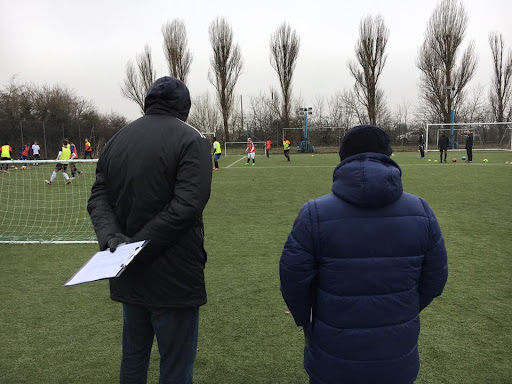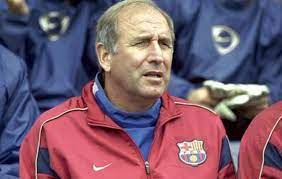Introduction

Football scouting has a vital part of the football industry. Scouts work with football teams to collect data and deliver it to data collecting companies that use it for third parties and their respective purposes.
A football scout is someone who attends matches on behalf of a club. Their purpose is to gain knowledge of the talent that is out there and report back to the football club with their findings. There are two types of scouts, a player scout and a tactical scout.
player's scout
There is several types of this sort of scouting such as
Scouting Young Players
A player scout evaluates a player’s performance and works out whether they would have what it takes to play at a higher level. If the scout is not sure then they or another representative of the club could come and watch a football player play. However, if they are sure a scout would approach the manager of the team the player is playing for, explaining who they are and stating their interest. They can also speak to the parents if they are present again explaining who they are and stating their interest in taking the player to a development center or academy. A development center is somewhere where the coaches from the club monitor player’s basic skills and see if they need to work on a few things or if they are good enough to go straight into the school of excellence/academy.
Scouting Players Already On Semi – Professional/Professional Contracts
When scouting a player already contracted to a semi-professional/professional club, the player scout still does all the things he would do when scouting a young player however, what is different is when it comes to making the initial approach/showing interest.
If after evaluation of the players performance the scout feels the player would be a good addition to the club he works for, they will report back to their club stating so and from there, the manager or chairman of the club will have to make their interest known with the players club and get permission to speak to the player/players agent first.
If the manager/chairman goes directly to the player or their family before going to the player’s club first, it can be considered as poaching and result in a legal case/fine. Once the club is given permission to speak to the player negotiations between the chairman and player and their agent begin.
Most player scouts are part-time, basically as and when the club wants you to look for new players. There are a select few higher up at football clubs who are on a salary and can get sent around the world to scout players.
Tactical Scout

A tactical scout is someone who attends matches on behalf of a club but instead of assessing talent of players alone, they analyze and assess a team’s tactics they play. What they look for is things such as formation, style of play, each individual player (danger men, weak links), set pieces, height, leaders etc.
Their role is to provide intelligence on upcoming opponents, give information to the manager which can help them to structure their teams to exploit the opposition’s weaknesses. Tactical scouts are usually full-time as their knowledge is valuable to the club and their league position.
Examples of famous football scouts

Piet de Visser can be considered as the godfather of scouting due to his fabulous discovery of Ronaldo
He once said I saw Ronaldo in St Brieux, in a small tournament And by the movements of him – I got a new life. I wanted to be a scout to find players like Ronaldo.He was phenomenal. He had the ball in the move and dribble in the move and he passed the player at full speed and full skill.
De Visser is also partly responsible for Chelsea’s most successful period.
He began working for Roman Abramovich soon after the Russian billionaire bought the Blues and has advised him on a number of signings, including Arjen Robben, Thibaut Courtois and Kevin De Bruyne.
2)CARLES REXACH

Another perfect example of football scouting is the great CARLES REXACH the man who found Lionel Messi
about that he said, I was in Uruguay, in Montevideo, after visits to Paraguay and Brazil. I was talking to Horacio Gaggioli, an Argentinian agent who was also an expert in youth football. He had contacted me because he wanted to bring a young player to my attention.
That young player was Lionel Messi.
I thought he was talking about a player of 17 or 18 years of age. But no, this kid was 13.
“I’m not going to watch him,” I told Horacio. “It is just too difficult to sign someone that young.”
that is a huge example why we need scouting to watch talents clearly
Development of football scouting
Now we will get to the most important part of the article, does scouting really work? Do talents still have their own opportunity based only on their talent and maybe a little bit of luck, to answer such questions we need to know how scouting started then developed till now.
Once upon a time, the main way that professional football clubs identified players they wanted to try and sign was by sending a scout to watch them play before reporting back with their findings. If the scout was lucky, that might involve a trip to a nice European city or the sultry heat of a South American country. The less fortunate might find themselves checking out a non-league goal machine in front of one man and his dog.
But, the nature of football scouting has changed somewhat in recent years to incorporate a more data-led approach, which allows clubs to analyze a broader range of players and find those with the attributes they are looking for.
But many clubs still rely on the old faithful ‘eye test’ when scouting players, so those that impress at lower league and even non-league level still have an opportunity to get spotted by those looking for raw young talents or a slightly-older diamond in the rough.
Football scouting is very much a global pursuit, and that’s why some clubs contract their scouts who live in countries all over the globe. For example, the Spanish side, Sevilla, once had a scouting network made up of more than 700 individuals around the world.
Increasingly, clubs are being acquired and managed as a portfolio. Think the City Football Group – they have Manchester City, New York City, Melbourne City, Girona, Yokohama and many more. Here, a scout may be employed by the group, rather than an individual club, and be tasked with finding new players suitable for each team as required.
And finally you can find the E_Scouting ,which is basically some applications that gather information about players or even platforms that have many scouts who will watch any talent’s data to evaluate them, one of those platforms is heyagoal.





